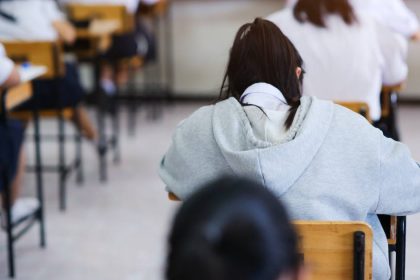The University of Adelaide and the South Australian (SA) Premier are concerned about the potentially negative economic impact a proposed federal tax on international students will have on the state.
The levy proposal, which would see international students pay an export tax, was raised in the Universities Accord interim report as a solution to increase funding for research and infrastructure.
With the final report due to be handed down next month, the sector is still divided on the possible pros and cons.
International student tax could help ease rental crisis
The federal government says a levy on international students could also help cut the soaring migration numbers that contribute to the nation’s rental crisis.
But a University of Adelaide spokeswoman says international students brought “enormous benefits” to SA, both “culturally and economically”.
“A levy of any kind … will risk the enduring success of the sector, risk our global reputation, and is not in the national interest,” she says.
International students believe placing a levy on their studies could cause major damage to Australia’s reputation and cement the idea individuals are used as “cash cows” for profit.
Federal education minister, Jason Clare, has described the proposed levy as a “sovereign wealth fund” and says it could help fund key areas and help protect the sector from future economic shocks.
Benefits to international students remain unclear
Some universities, including James Cook University in far-north Queensland, the regional University of Newcastle and the University of Technology Sydney, support the plan, which has been described as a GST on education.
The levy, said Minister Clare, was one of about 70 ideas in the interim report that was released in July.
International students already have two levies, which are relatively small sums that fund the specific government services that support the unique needs of international students and providers.
This proposed levy would be different because the fee stream would be significantly higher. The benefits to international students, though, are less clear. The new levy would work by collecting funds from institutions that receive large incomes from international student fees and then redistribute those funds to tertiary institutions that don’t.
Regional universities call for funding redistribution
In its accord submission, the University of Newcastle said that the redistribution of funds was justified as “international student income is Australia’s third-largest export, contributing nearly 30 per cent of sector revenue in 2019, however, it is primarily focussed in capital cities”.
The top five universities for international revenue are all prestigious Group of Eight (Go8) institutions in major cities, while the bottom five are all regional.
Green’s education spokesperson, Mehreen Faruqi, said: “Forcing international students to do the heavy lifting on higher education funding must end.
“The government must properly fund our universities, not deter or punish students from studying here.”
The Property Council of Australia’s student accommodation council, the Australian Business Deans Council, Queensland University of Technology and the Go8 universities have expressed shared concerns it would damage Australia’s reputation as an international student destination and cause financial hardship, with international students and post-study work visa holders ineligible for most public services including healthcare, welfare and concession cards.
Does proposed tax sends wrong message?
University of Melbourne Higher Education Policy Adviser Gwilym Croucher says Australia had to be careful about what signals it sent international students.
“The decision to study overseas is not taken lightly – if we want to welcome them, we must be welcoming,” he said.
SA Premier Peter Malinauskas had not yet received briefings from the federal government but said: “As a state we’ve made changes to try and grow the number of international students we can accommodate without that being at the expense of domestic education. So, we would want to make sure any changes that occur federally don’t undermine that.”







